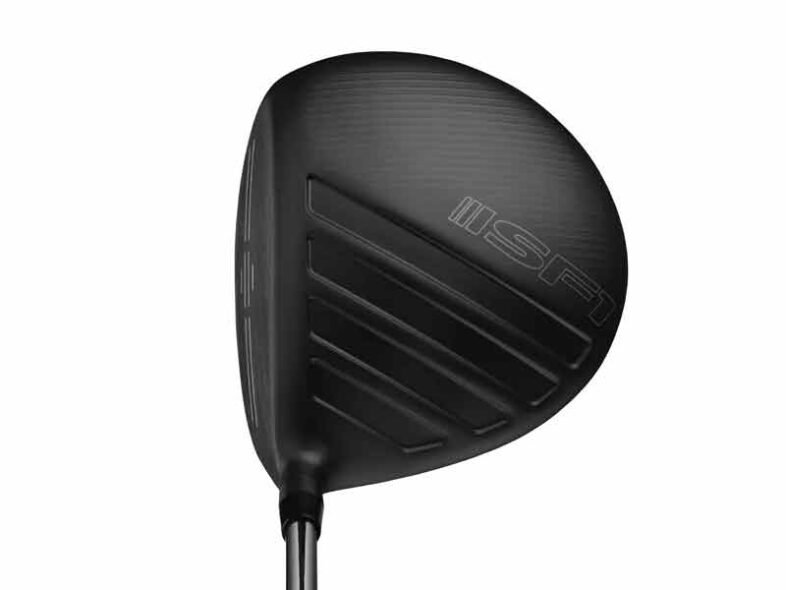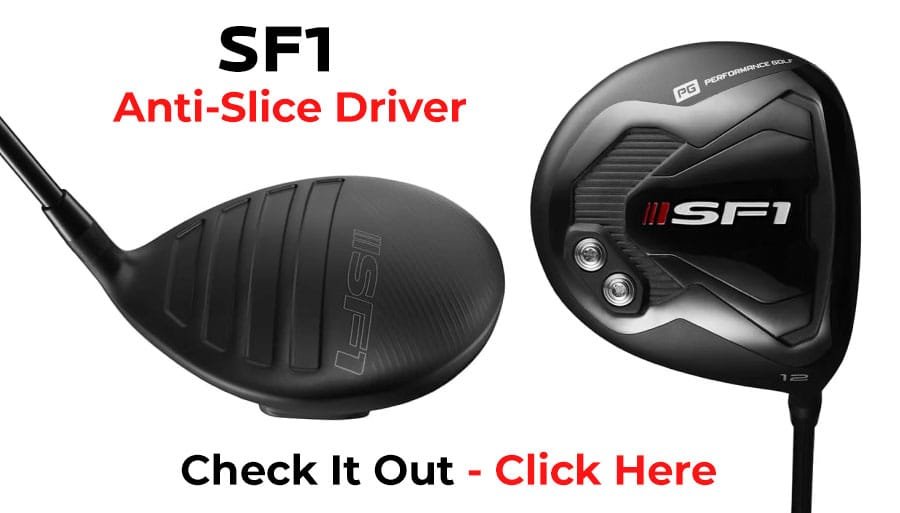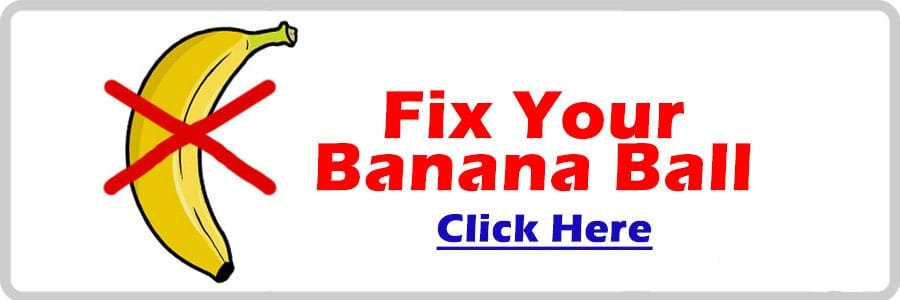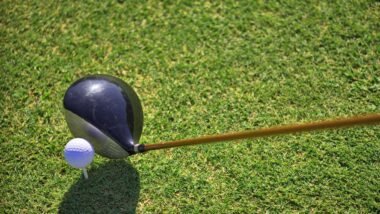Have you ever felt frustrated watching your golf ball veer off to the right, leaving you wondering how to regain control of your shot? If you’re one of the many golfers struggling with a slice, you’ve likely considered various solutions to improve your game. One option that often comes up is using a draw bias driver. But is this really the best way to fix a slice?
Understanding the Slice in Golf
A slice is a shot that curves dramatically to the right (for right-handed golfers) as it travels down the fairway. This common issue can lead to lost distance and less accuracy, making it difficult to score well.
What Causes a Slice?
Several factors can contribute to a slice. Here are the key culprits:
- Open Clubface at Impact: If your clubface is open relative to the target line at the moment of impact, it will cause the ball to spin sideways, resulting in a slice.
- Out-to-In Swing Path: A swing path that goes outside to inside will also lead to a slicing action. This usually occurs when the golfer overcompensates for their swing or doesn’t fully rotate their body.
- Poor Grip: An improper grip can lead to inconsistent clubface control, making it difficult to manage the ball’s direction.
- Lack of Body Rotation: Failing to turn your body properly during the swing can create a weaker shot that’s more prone to slicing.
Understanding the mechanics behind a slice is essential before considering any solution.
What is a Draw Bias Driver?
A draw bias driver is specifically designed to help golfers who struggle with a slice. These clubs feature design elements that encourage a right-to-left shot shape, helping you counteract the natural tendency to slice the ball.
Features of a Draw Bias Driver
Here are some features to look for in a draw bias driver:
| Feature | Description |
|---|---|
| Adjustable Weighting | These drivers often allow you to shift weight to promote a draw. |
| Closed Clubface | A closed clubface at address can help you hit straighter shots. |
| Offset Design | An offset driver helps to square the clubface at impact. |
| Low Spin Technology | This can help reduce the spin on the ball, which is often a contributing factor to a slice. |
How Does It Help?
The primary benefit of using a draw bias driver is that it helps mitigate the common faults that lead to slicing. By encouraging a more circular swing path and a closed clubface, it can improve your accuracy and distance off the tee.
Is It the Best Solution?
Now that you know what a draw bias driver is, you might be wondering if it’s the best way to fix your slice. While using one can certainly help, it’s essential to consider a variety of factors.
Benefits of Using a Draw Bias Driver
- Immediate Results: Many golfers notice a difference right away when switching to a draw bias driver.
- Increased Confidence: Knowing your gear is suited to help correct your slice can lead to better focus on your swing.
- Technological Advances: Modern draw bias drivers are equipped with advanced technology aimed at reducing slices.
Limitations of Using a Draw Bias Driver
- Band-Aid Solution: A draw bias driver might only mask the problem rather than fix your swing’s underlying issues.
- Dependence on Equipment: Relying solely on a driver can lead you to neglect proper swing mechanics, which are crucial for overall improvement.
- Not Universal: What works for one golfer might not work for another. It’s a personal journey, and you need to find what works best for you.
Other Methods to Fix a Slice
If you’re not sure about investing in a new driver, there are other approaches you can try to reduce your slice.
Working on Your Grip
A faulty grip can have drastic effects on how you hit the ball. Here are a couple of tips:
- Neutral Grip: Ensure that your hands are neither too strong nor too weak.
- Verify Hand Placement: The “V” formed by your thumb and forefinger should point toward your right shoulder for right-handed golfers.
Adjusting Your Stance
Sometimes, simply changing your stance can lead to better results.
- Aim Right: Aim your feet and shoulders slightly to the right of your target.
- Ball Position: Try positioning the ball more forward in your stance to help close the clubface at impact.
Swing Path Correction
Focusing on your swing path can yield great benefits.
- Inside-Out Swing Path: Work on swinging more from the inside out, which can help produce a straighter shot.
- Practice Drills: Use alignment sticks during practice to ensure you’re following the desired path.
Common Misconceptions About Draw Bias Drivers
There are several misconceptions surrounding draw bias drivers that can lead to confusion.
Misconception #1: It’s a Quick Fix
While draw bias drivers can help, they won’t magically solve all your slicing problems. It’s essential to combine the driver with practice and proper swing techniques.
Misconception #2: They Are Only for Beginners
Many experienced golfers use draw bias drivers as a tool to help correct their slicing tendencies. Level of expertise shouldn’t deter you from using this equipment if it benefits your game.
Misconception #3: They Will Fix Your Slice Automatically
A driver won’t fix your slice if you don’t address the other contributing factors. It’s just one piece of a larger puzzle.
Choosing the Right Draw Bias Driver
If you decide that a draw bias driver may be the right choice for you, here are some tips for selection.
Test Different Models
Before making a purchase, it’s a good idea to try various models. Feel free to visit a local pro shop or use a simulator to get a sense of how different drivers perform in your hands.
Seek Professional Guidance
Consult with a golf professional or club fitter who can assess your swing and recommend the most suitable model based on your specific needs.
Consider Your Swing Characteristics
Understanding your swing speed and trajectory can help narrow down your options. Some drivers suit slower swings better, while others may be more appropriate for faster swings.
Long-Term Solutions: Refocusing on Your Game
While a draw bias driver can help you in the short term, addressing the root cause of your slice is vital for long-term success.
Regular Practice
Make it a habit to practice the fundamentals of your swing. Regular practice helps solidify good habits and reduces the likelihood of reverting to a slice.
Consider Professional Lessons
Investing time in lessons with a qualified instructor can provide personalized feedback and help you make the modifications needed to improve your swing.
Analyze Your Swing with Technology
Many facilities offer swing analysis technology, which can give you insights into your swing mechanics that you may not notice on your own.
The Role of Mental Game
The mental side of golf is just as important as the physical. Here’s how you can strengthen your mindset.
Confidence in Your Equipment
Having confidence in your driver can translate to better performance on the course. If you know your driver can help, allow yourself to focus on your swing technique instead of worrying about slicing.
Visualization Techniques
Before swinging, visualize the shot you want to hit. This mental exercise can help improve focus and solidify a more positive shot execution.
Stay Patient
Golf is a game that requires patience. Understand that not every shot will be perfect, and maintaining a positive attitude can help you improve over time.
Conclusion: The Path Forward
Now that you have a clearer idea of whether a draw bias driver is the best way to fix your slice, remember that it’s just one part of improving your overall game. Combining equipment with technique, practice, and mental strategies will lead to more significant improvements.
So the next time you find yourself on the course, keep these tips in mind, and know that with a little effort and the right tools, you can turn that slice into a powerful, controlled shot!







